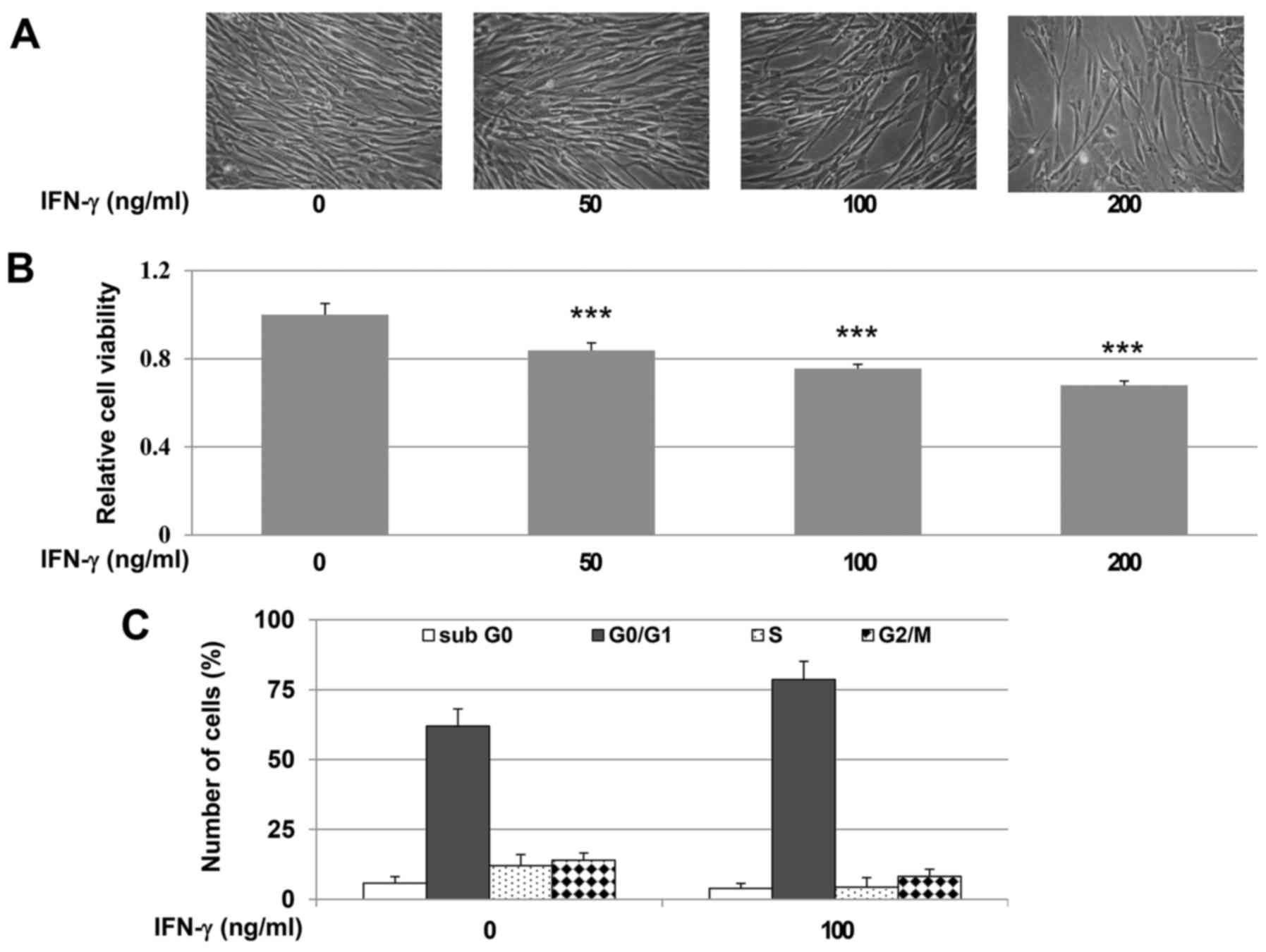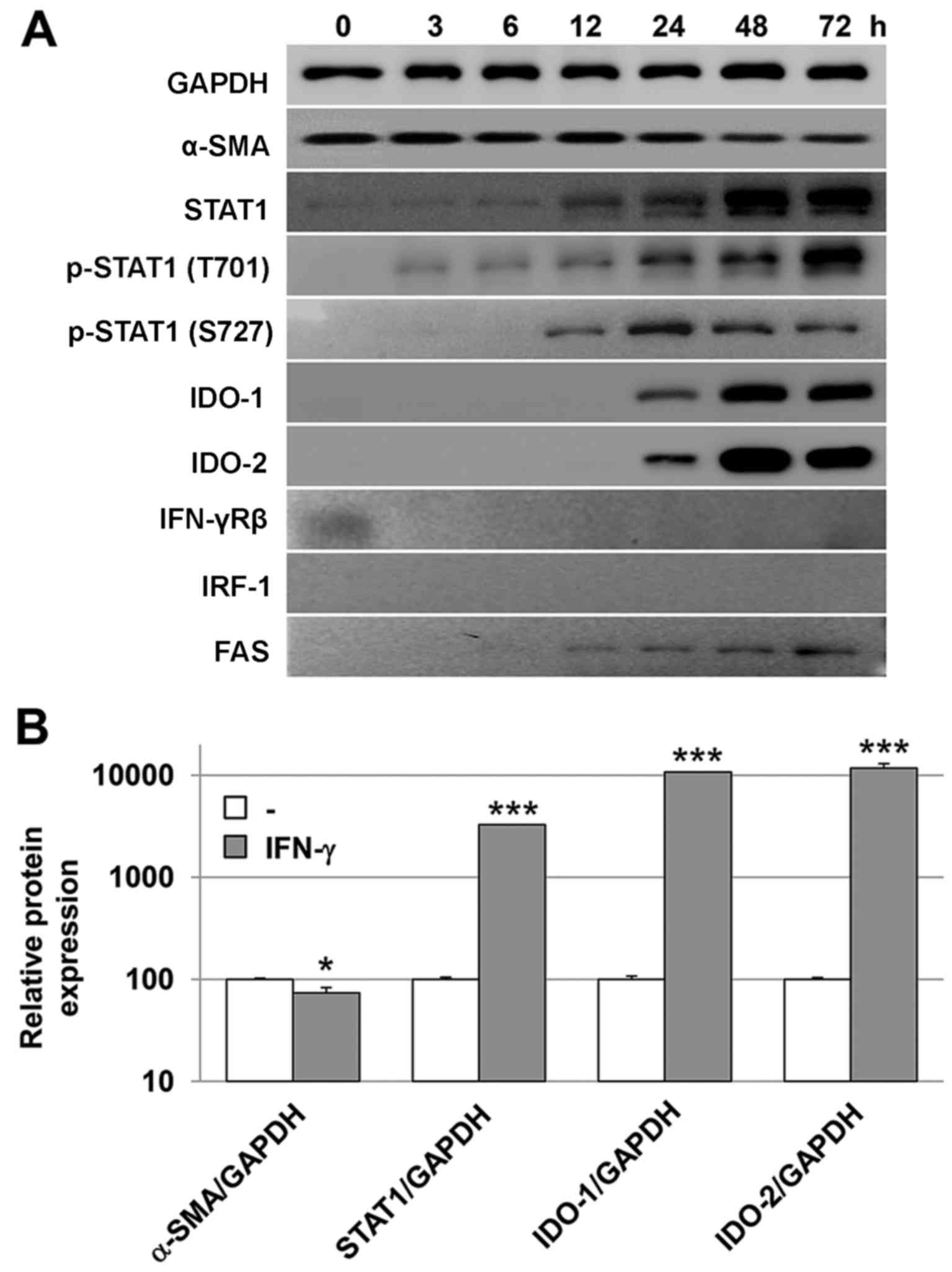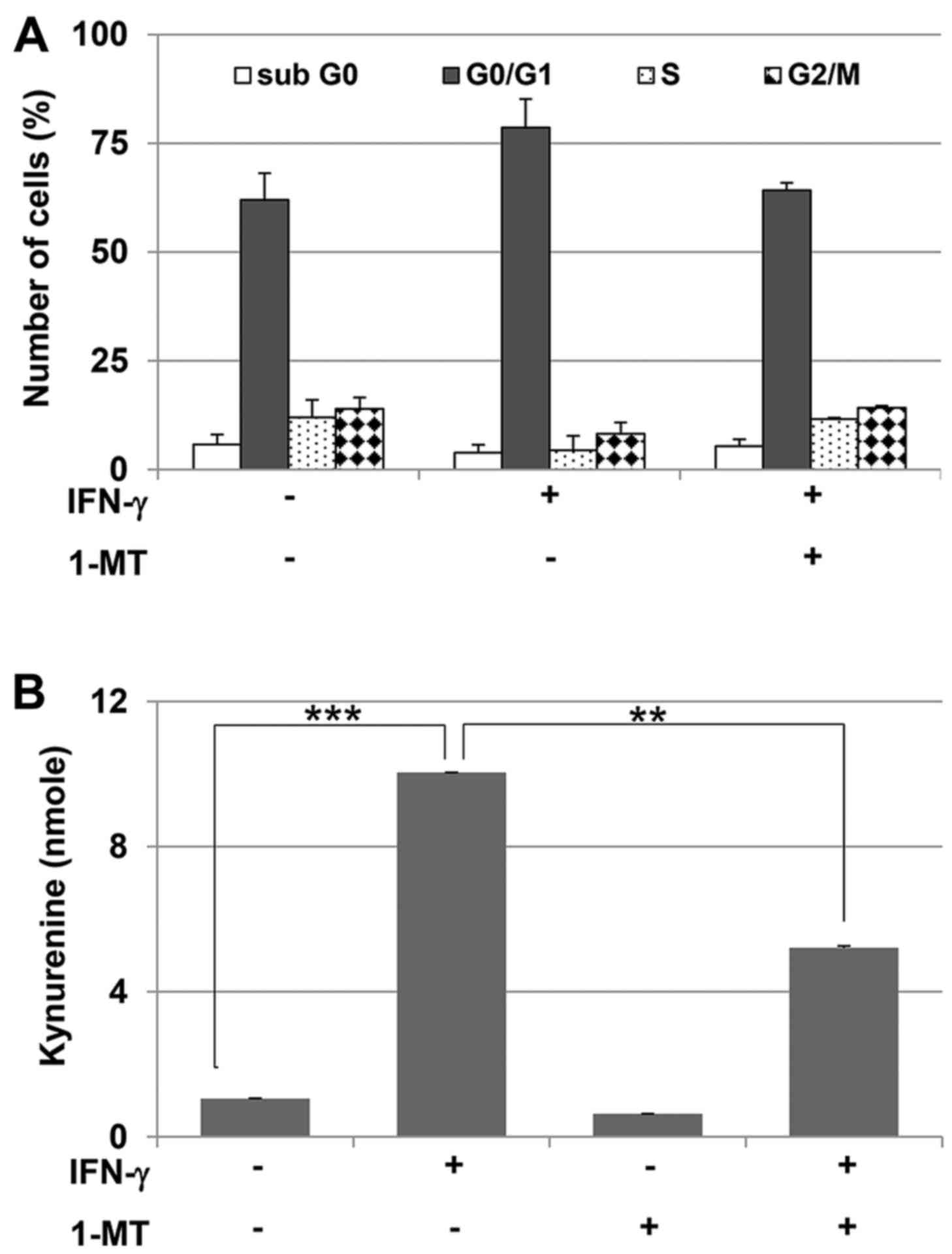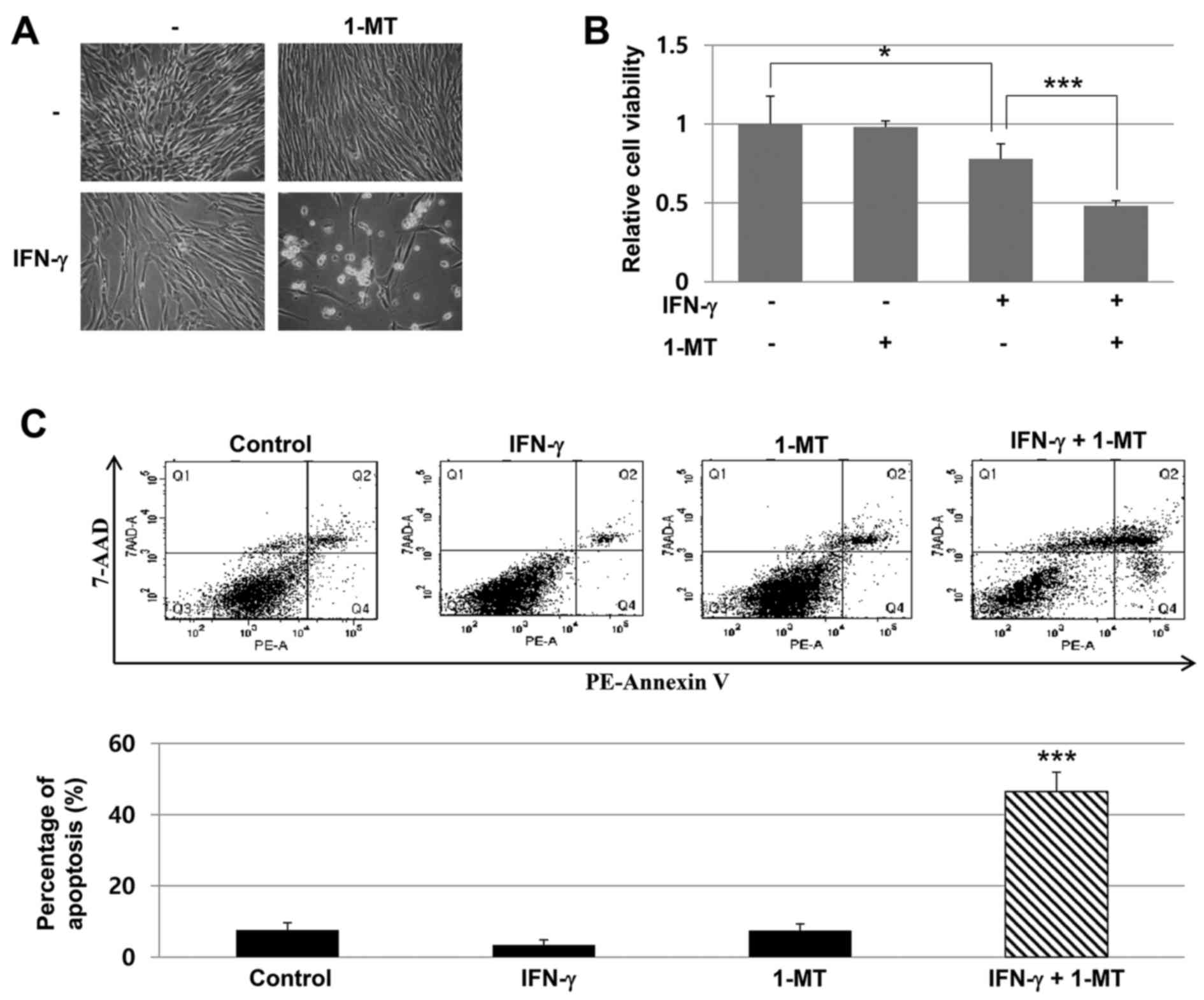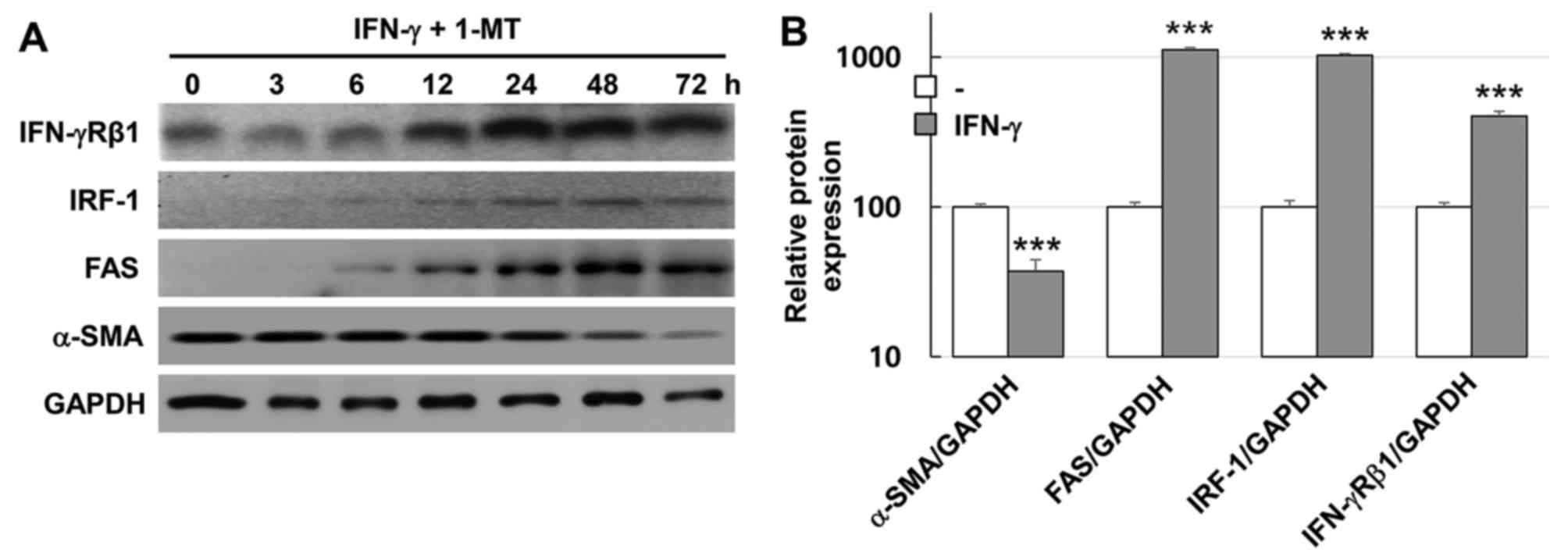|
1
|
Friedman SL: Hepatic fibrosis - overview.
Toxicology. 254:120–129. 2008. View Article : Google Scholar : PubMed/NCBI
|
|
2
|
Kim G, Cho YZ and Baik SK: Assessment for
risk of bias in systematic reviews and meta-analyses in the field
of hepatology. Gut Liver. 9:701–706. 2015. View Article : Google Scholar : PubMed/NCBI
|
|
3
|
Kim G, Cho YZ, Baik SK, Kim MY, Hong WK
and Kwon SO: The accuracy of ultrasonography for the evaluation of
portal hypertension in patients with cirrhosis: A systematic
review. Korean J Radiol. 16:314–324. 2015. View Article : Google Scholar : PubMed/NCBI
|
|
4
|
Eom YW, Shim KY and Baik SK: Mesenchymal
stem cell therapy for liver fibrosis. Korean J Intern Med.
30:580–589. 2015. View Article : Google Scholar : PubMed/NCBI
|
|
5
|
Jang YO, Jun BG, Baik SK, Kim MY and Kwon
SO: Inhibition of hepatic stellate cells by bone marrow-derived
mesenchymal stem cells in hepatic fibrosis. Clin Mol Hepatol.
21:141–149. 2015. View Article : Google Scholar : PubMed/NCBI
|
|
6
|
Kim G, Eom YW, Baik SK, Shin Y, Lim YL,
Kim MY, Kwon SO and Chang SJ: Therapeutic effects of mesenchymal
stem cells for patients with chronic liver diseases: Systematic
Review and Meta-analysis. J Korean Med Sci. 30:1405–1415. 2015.
View Article : Google Scholar : PubMed/NCBI
|
|
7
|
Friedman SL: Stellate cells: A moving
target in hepatic fibro-genesis. Hepatology. 40:1041–1043. 2004.
View Article : Google Scholar : PubMed/NCBI
|
|
8
|
Friedman SL: Hepatic stellate cells:
Protean, multifunctional, and enigmatic cells of the liver. Physiol
Rev. 88:125–172. 2008. View Article : Google Scholar : PubMed/NCBI
|
|
9
|
Jang YO, Kim YJ, Baik SK, Kim MY, Eom YW,
Cho MY, Park HJ, Park SY, Kim BR, Kim JW, et al: Histological
improvement following administration of autologous bone
marrow-derived mesenchymal stem cells for alcoholic cirrhosis: A
pilot study. Liver Int. 34:33–41. 2014. View Article : Google Scholar
|
|
10
|
Bonnem EM and Oldham RK: Gamma-interferon:
Physiology and speculation on its role in medicine. J Biol Response
Mod. 6:275–301. 1987.PubMed/NCBI
|
|
11
|
Bouros D, Antoniou KM, Tzouvelekis A and
Siafakas NM: Interferon-gamma 1b for the treatment of idiopathic
pulmonary fibrosis. Expert Opin Biol Ther. 6:1051–1060. 2006.
View Article : Google Scholar : PubMed/NCBI
|
|
12
|
King TE Jr, Albera C, Bradford WZ,
Costabel U, Hormel P, Lancaster L, Noble PW, Sahn SA, Szwarcberg J,
Thomeer M, et al INSPIRE Study Group: Effect of interferon gamma-1b
on survival in patients with idiopathic pulmonary fibrosis
(INSPIRE): A multicentre, randomised, placebo-controlled trial.
Lancet. 374:222–228. 2009. View Article : Google Scholar : PubMed/NCBI
|
|
13
|
Weng HL, Wang BE, Jia JD, Wu WF, Xian JZ,
Mertens PR, Cai WM and Dooley S: Effect of interferon-gamma on
hepatic fibrosis in chronic hepatitis B virus infection: A
randomized controlled study. Clin Gastroenterol Hepatol. 3:819–828.
2005. View Article : Google Scholar : PubMed/NCBI
|
|
14
|
Ulloa L, Doody J and Massagué J:
Inhibition of transforming growth factor-beta/SMAD signalling by
the interferon-gamma/STAT pathway. Nature. 397:710–713. 1999.
View Article : Google Scholar : PubMed/NCBI
|
|
15
|
Ghosh AK, Yuan W, Mori Y, Chen SJ and
Varga J: Antagonistic regulation of type I collagen gene expression
by interferon-gamma and transforming growth factor-beta.
Integration at the level of p300/CBP transcriptional coactivators.
J Biol Chem. 276:11041–11048. 2001. View Article : Google Scholar : PubMed/NCBI
|
|
16
|
Higashi K, Inagaki Y, Fujimori K, Nakao A,
Kaneko H and Nakatsuka I: Interferon-gamma interferes with
transforming growth factor-beta signaling through direct
interaction of YB-1 with Smad3. J Biol Chem. 278:43470–43479. 2003.
View Article : Google Scholar : PubMed/NCBI
|
|
17
|
Gu L, Zhu YJ, Guo ZJ, Xu XX and Xu WB:
Effect of IFN-gamma and dexamethasone on TGF-beta1-induced human
fetal lung fibroblast-myofibroblast differentiation. Acta Pharmacol
Sin. 25:1479–1488. 2004.PubMed/NCBI
|
|
18
|
Poosti F, Bansal R, Yazdani S, Prakash J,
Post E, Klok P, van den Born J, de Borst MH, van Goor H, Poelstra
K, et al: Selective delivery of IFN-γ to renal interstitial
myofibroblasts: A novel strategy for the treatment of renal
fibrosis. FASEB J. 29:1029–1042. 2015. View Article : Google Scholar
|
|
19
|
Radaeva S, Sun R, Jaruga B, Nguyen VT,
Tian Z and Gao B: Natural killer cells ameliorate liver fibrosis by
killing activated stellate cells in NKG2D-dependent and tumor
necrosis factor-related apoptosis-inducing ligand-dependent
manners. Gastroenterology. 130:435–452. 2006. View Article : Google Scholar : PubMed/NCBI
|
|
20
|
Melhem A, Muhanna N, Bishara A, Alvarez
CE, Ilan Y, Bishara T, Horani A, Nassar M, Friedman SL and Safadi
R: Anti-fibrotic activity of NK cells in experimental liver injury
through killing of activated HSC. J Hepatol. 45:60–71. 2006.
View Article : Google Scholar : PubMed/NCBI
|
|
21
|
Shimizu T, Nomiyama S, Hirata F and
Hayaishi O: Indoleamine 2,3-dioxygenase. Purification and some
properties. J Biol Chem. 253:4700–4706. 1978.PubMed/NCBI
|
|
22
|
Prendergast GC, Smith C, Thomas S,
Mandik-Nayak L, Laury-Kleintop L, Metz R and Muller AJ: Indoleamine
2,3-dioxygenase pathways of pathogenic inflammation and immune
escape in cancer. Cancer Immunol Immunother. 63:721–735. 2014.
View Article : Google Scholar : PubMed/NCBI
|
|
23
|
Munn DH and Mellor AL: Indoleamine
2,3-dioxygenase and tumor induced tolerance. J Clin Invest.
117:1147–1154. 2007. View
Article : Google Scholar : PubMed/NCBI
|
|
24
|
Liebau C, Baltzer AW, Schmidt S, Roesel C,
Karreman C, Prisack JB, Bojar H and Merk H: Interleukin-12 and
interleukin-18 induce indoleamine 2,3-dioxygenase (IDO) activity in
human osteosarcoma cell lines independently from interferon-gamma.
Anticancer Res. 22:931–936. 2002.PubMed/NCBI
|
|
25
|
Fujigaki S, Saito K, Sekikawa K, Tone S,
Takikawa O, Fujii H, Wada H, Noma A and Seishima M:
Lipopolysaccharide induction of indoleamine 2,3-dioxygenase is
mediated dominantly by an IFN-gamma-independent mechanism. Eur J
Immunol. 31:2313–2318. 2001. View Article : Google Scholar : PubMed/NCBI
|
|
26
|
Carlin JM, Ozaki Y, Byrne GI, Brown RR and
Borden EC: Interferons and indoleamine 2,3-dioxygenase: Role in
antimicrobial and antitumor effects. Experientia. 45:535–541. 1989.
View Article : Google Scholar : PubMed/NCBI
|
|
27
|
Mallat A, Preaux AM, Blazejewski S,
Rosenbaum J, Dhumeaux D and Mavier P: Interferon alfa and gamma
inhibit proliferation and collagen synthesis of human Ito cells in
culture. Hepatology. 21:1003–1010. 1995. View Article : Google Scholar : PubMed/NCBI
|
|
28
|
Fort J, Pilette C, Veal N, Oberti F,
Gallois Y, Douay O, Rosenbaum J and Calès P: Effects of long-term
administration of interferon alpha in two models of liver fibrosis
in rats. J Hepatol. 29:263–270. 1998. View Article : Google Scholar : PubMed/NCBI
|
|
29
|
Inagaki Y, Nemoto T, Kushida M, Sheng Y,
Higashi K, Ikeda K, Kawada N, Shirasaki F, Takehara K, Sugiyama K,
et al: Interferon alfa downregulates collagen gene transcription
and suppresses experimental hepatic fibrosis in mice. Hepatology.
38:890–899. 2003. View Article : Google Scholar : PubMed/NCBI
|
|
30
|
Mailankot M, Smith D, Howell S, Wang B,
Jacobberger JW, Stefan T and Nagaraj RH: Cell cycle arrest by
kynurenine in lens epithelial cells. Invest Ophthalmol Vis Sci.
49:5466–5475. 2008. View Article : Google Scholar : PubMed/NCBI
|
|
31
|
Croitoru-Lamoury J, Lamoury FM, Caristo M,
Suzuki K, Walker D, Takikawa O, Taylor R and Brew BJ: Interferon-γ
regulates the proliferation and differentiation of mesenchymal stem
cells via activation of indoleamine 2,3 dioxygenase (IDO). PLoS
One. 6:e146982011. View Article : Google Scholar
|
|
32
|
Baroni GS, D'Ambrosio L, Curto P, Casini
A, Mancini R, Jezequel AM and Benedetti A: Interferon gamma
decreases hepatic stellate cell activation and extracellular matrix
deposition in rat liver fibrosis. Hepatology. 23:1189–1199. 1996.
View Article : Google Scholar : PubMed/NCBI
|
|
33
|
Muir AJ, Sylvestre PB and Rockey DC:
Interferon gamma-1b for the treatment of fibrosis in chronic
hepatitis C infection. J Viral Hepat. 13:322–328. 2006. View Article : Google Scholar : PubMed/NCBI
|
|
34
|
Rutenfranz I and Kirchner H:
Pharmacokinetics of recombinant murine interferon-gamma in mice. J
Interferon Res. 8:573–580. 1988. View Article : Google Scholar : PubMed/NCBI
|
|
35
|
Kano A, Watanabe Y, Takeda N, Aizawa S and
Akaike T: Analysis of IFN-gamma-induced cell cycle arrest and cell
death in hepatocytes. J Biochem. 121:677–683. 1997. View Article : Google Scholar : PubMed/NCBI
|
|
36
|
Li F, Li QH, Wang JY, Zhan CY, Xie C and
Lu WY: Effects of interferon-gamma liposomes targeted to
platelet-derived growth factor receptor-beta on hepatic fibrosis in
rats. J Control Release. 159:261–270. 2012. View Article : Google Scholar : PubMed/NCBI
|
|
37
|
Bansal R, Prakash J, De Ruiter M and
Poelstra K: Interferon gamma peptidomimetic targeted to hepatic
stellate cells ameliorates acute and chronic liver fibrosis in
vivo. J Control Release. 179:18–24. 2014. View Article : Google Scholar : PubMed/NCBI
|















